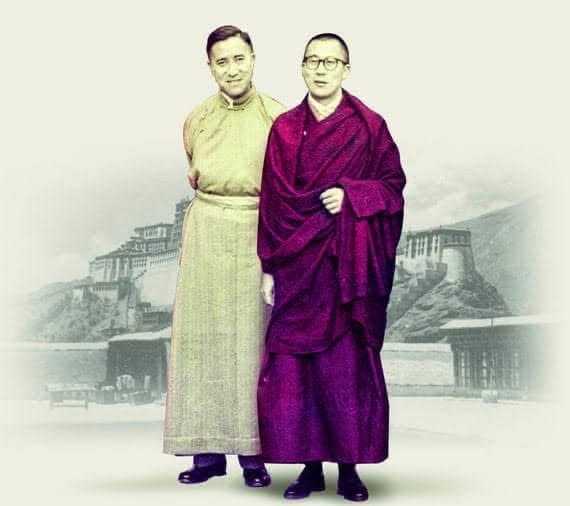Ottawa, February 10, 2025 – Kasur Gyalola has rightly been described as a towering figure in the development of Tibetan resistance. He was an active figure in developing links with key figures in the PRC, Taiwan, India, and, of course, the U.S.A. His work at the UN resulted in three statements of support, 1959, 1960, and 61, this at a time when the fledgeling Tibetan set up in exile had no structured diplomatic outreach.
What Sawang Chemo brought to the table was his time spent from 1942 to 49 in the then Republic of China, where in the end, he saw the emergence of the Communist Party and Mao as victors in a long civil war. Based on his close relationship with the family of Chiang Kai Shek, he was able to bring his deep understanding of the politics, mindsets and cultural dimensions, so critical in developing effective strategies to both counter and cooperate when needed. An attribute that is needed more than ever today.
His early work in India from 1951 and becoming the focal point of patriotic Tibetans outside Tibet was key to helping to prepare the ground for the eventual arrival of an asylum provided to His Holiness and, over time, to some 140,000 plus Tibetans. This is no mean achievement.
Post-1959, Tibetans will know of his role in getting US assistance for the armed resistance, which, following the October 1962 debacle on the Indian border, gained traction until it was sidelined once the US changed its strategic priorities and tilted to the People’s Republic of China as a counterbalance to the USSR.
Given his insights and experience, he was also able to play a diplomatic role and was also a key interlocutor in the lead-up to the negotiations process, especially with Deng Xiaoping; though they did not produce the results sought, the intermediate results were to prove to the Communist party that even though there had been some 20 years of socialist development of Tibet, the wellspring of bone-deep sense of being Tibetan remained rock solid among those who lived on the High Plateau and giving a lie to the shallow claims of socialist progress.
As there is no playbook for exile, each nation deals with it in different ways; Gyalola gave our situation his best insights and pursued links that helped Tibetans in the diaspora manage the special problems caused by exile. Of his many accomplishments and setbacks, his perspective was sharpened by years of engagement with PRC leaders, US, Indian, Taiwanese, etc; one lesson stands out: the belief that in the end, real progress can only be achieved by finding the right people, timing and opportunities within the PRC. If nothing else, we in the diaspora may want to heed this. While he was not without criticism, now is not the time or place, let us mark the passing of a Patriot who brought his best game to the issue of Tibet and gave it his all. In writing his autobiography, the Noodle Maker of Kalimpong, he did something that few of our secular leaders have done: put a record out in the public domain for further examination. This is important and a building block to developing a democratic culture that respects but also examines the lives and impact of those who would lead us. A salute to his works.
We at the Canada Tibet Committee have had the honour of hosting him in Ottawa. At the invitation of the Canada Tibet Committee, Gyalo Thondup visited Ottawa in 1991. While there, he requested a meeting with Canada’s indigenous leaders. The Assembly of First Nations (AFN), under the then leadership of Ovid Mecredi, was receptive and gathered elders and chiefs representing communities from across Canada. The meeting was warm and productive. Discussion ranged from struggles for land to efforts for the preservation of culture and language. There was laughter and camaraderie as Gyalo Thondup told his stories from old Tibet and new life experiences in exile. The elders and chiefs agreed to keep in touch and support each other.
By Samphe Lhalungpa, Chairperson of the Board

